Michael Cartel from my 1993 print column ‘Parades Make Strange Bedfellows‘
The biggest parade in Los Angeles history. Over one million attended. Tanks, jets, missiles. The day before, 200,000 stood for another elegant celebration in Orange County. San Francisco, the city that can immediately field 40,000 anti-war protesters threw its own splashy parade. All were honoring “our-brave-fighting-men-and-women” from the Gulf War in 1991.
I was lucky returning from Vietnam in January, 1970. I was shot at many times but never hit. I fired at enemy soldiers but never struck a civilian. I got back without emotional problems and was even paid by the government to attend university. But there was something else.
We were sent home from (the country formerly known as The Republic of South) Vietnam one by one, usually at night. They snuck us into our own country so that no civilian would be embarrassed or insulted. And there was no parade.
America supported for several years the involvement in Vietnam, until the 1968 Tet Offensive. Tet was a disaster for the (enemy) North Vietnamese Army (they lost 45,000 soldiers and the popular uprising they had expected in the South did not occur). But American politicians said that progress was being made in the war, and now it was clear that Vietnam might have to be destroyed in order to be saved.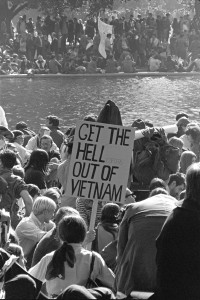
It was first a crusade, then a challenge and finally a burden. The most visible targets of the frustration became the returning American soldiers.
I was drafted into the Army, I didn’t join. I had to push and finally fight my way through anti-war protesters just to get into the L.A. Army induction center. True story.
Before being sent to Ft. Ord my father told me to live in Mexico (at his expense) and wait out the war. The draft was soon abolished and a blanket amnesty was seven years away. But for me (as was the case with many draft-dodgers running for Canada) it was a matter of conscience.
At 19 I believed (what President John Kennedy told me) that we were fighting to contain communism and make the world safe for democracy. “Pay any price, bear any burden, meet any hardship, support any friend, oppose any foe, in order to assure the survival and the success of liberty.” The Best and the Brightest believed the same. At the beginning.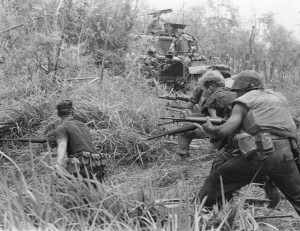
With communism withering around the world and democracy becoming a fashionable cause, the Vietnam War now appears to have been less than critical. America certainly paid for its crusade; at a cost of 58,000 combat deaths, $150 billion ($675 billion today), and with a social, economic upheaval that is still felt. It was not in our best national interest (as Clark Clifford said with a straight face).
Today I believe it was the wrong war for the right reason. Despite the Cold War monolith-containment-domino think loop (Kennedy Doctrine) or the flawed, dishonest (Johnson War Room) Gulf of Tonkin Resolution, the value of saving innocents from invading aggressors had merit. I don’t want the U.S. to be the Earth’s cop, but regarding ‘the right reason’ for intervention, I would have spared the one-million civilians who later died from Rwanda’s 1994 genocide, where the UN ran away and no one came to their rescue.
The Vietnam War was far more than an agrarian revolt, but it wasn’t our hill to die for; “…an Asian war that could finally be decided only by Asians,” Robert McNamara said 25 years too late.

My Lai massacre, March, 1968
However, the mania for body counts, strategy of attrition and search and destroy tactics were not winning over the Vietnamese people. Neither was the shamelessly corrupt (and anti-Buddhist) South Vietnamese government of Ngo Dinh Diem (and his successors).
But it was the television and print images, with no end in sight that changed public opinion; the pistol shot to the head of a suspected Viet Cong by a Saigon police chief; civilian bodies piled deep at My Lai; the screaming girl from an accidental napalm strike on Trang Bang; the pathetic helicopter evacuation from the Pittman apartment in Saigon. And the grisly screams, gunfire, blood from firefights on the nightly news.
Many films on the Vietnam War portrayed American soldiers as kill-happy sociopaths, drug addicts or fools without sense to avoid the draft. Or far worse, just robotic patriots.
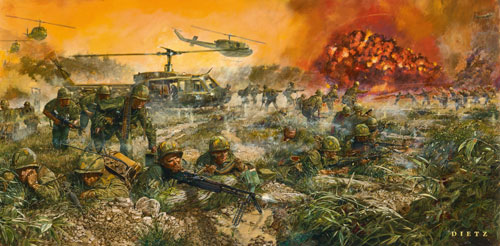
The political/cultural divide was against America’s involvement in a “immoral, imperialist, fascist, rapacious, racist, criminal and inhumane war.” But for all their posturing, strutting the antiwar movement died with the end of the draft in 1973 – while the war raged for another two years.
Then during the 1979 Iranian hostage crisis the country gushed with patriotism and lavished gifts on the released hostages. Nearly all were career diplomats, not young draftees. They were given parades, book options, even lifetime baseball passes. As of 2015 each hostage was paid $4.4 million in ‘compensation.’
Many Vietnam veterans were confused and (privately) outraged with the absurd grotesque.
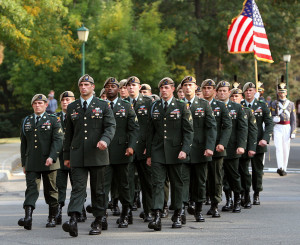 Now with the Gulf War everyone has jumped onto the juggernaut. Thoughtful progressives like Maryl Streep have out-photo-opped the most shameless war lovers.
Now with the Gulf War everyone has jumped onto the juggernaut. Thoughtful progressives like Maryl Streep have out-photo-opped the most shameless war lovers.
But I’m glad to see it.
The L.A. parade even had a contingent of Vietnam vets led by General William Westmoreland, for what it was worth. And this time it was the American soldier critics who had to hide behind the crowd and beg for media attention.
Jane Fonda, the most popular anti-war celebrity activist apologized three years ago for her obnoxious 1972 PR stunt in a North Vietnamese anti-aircraft gunseat in Hanoi (although not for her bromide on American POWs lying about having been tortured).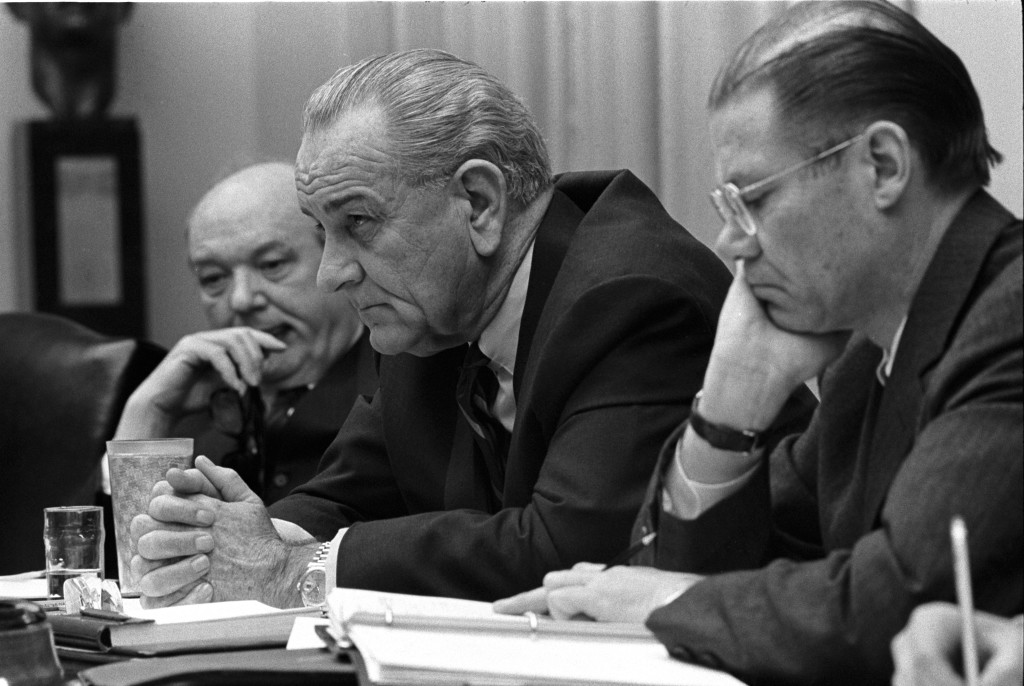
President Johnson, who knew (as early as 1965) that the war could not be won, continued to throw young Americans into the meat grinder (while some 1,000 Asian civilians died every week), remains (rightfully) historically shamed. But what I would like to hear are apologies from the architects or the Vietnam War; McGeorge Bundy, Robert McNamara, Arthur Schlesinger Jr. and other liberal hawks who rode into power from Lyndon Johnson’s trenchant ‘Daisy Girl’ election commercial (calling Barry Goldwater a war monger while the boys in Johnson’s back room were planning the Vietnam blood bath). When the war went sour they deftly separated themselves from their policies and protected their careers.
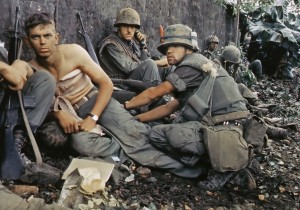 Malaria, two-steppers, punji sticks, satchel charges, fragging, heroin, dinky dau lifers, Charlie-by-night and the hideous, unpredictable violence. And some of the war protesters, who became the media darlings, with their placards condemning American soldiers as baby-killers. I would have had no issue with them had they merely attacked the policy-makers, profiteers and war lovers. The well-intentioned fools had no idea in hell what they were talking about, vilifying, dehumanizing the vets.
Malaria, two-steppers, punji sticks, satchel charges, fragging, heroin, dinky dau lifers, Charlie-by-night and the hideous, unpredictable violence. And some of the war protesters, who became the media darlings, with their placards condemning American soldiers as baby-killers. I would have had no issue with them had they merely attacked the policy-makers, profiteers and war lovers. The well-intentioned fools had no idea in hell what they were talking about, vilifying, dehumanizing the vets.
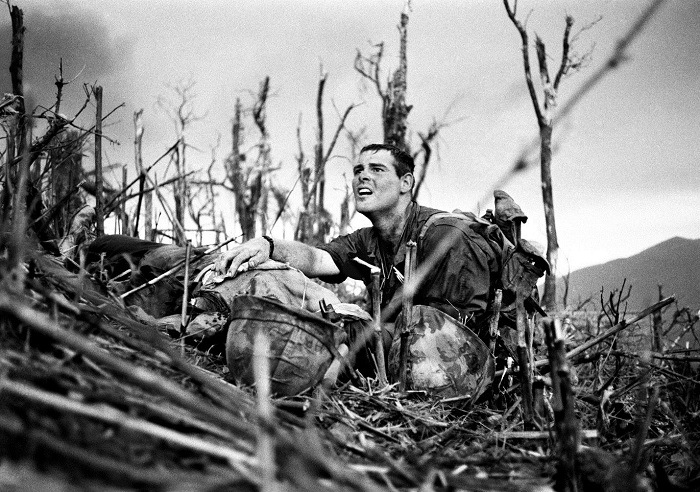
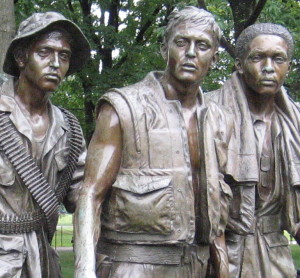 But the image I remember most from the whole era was a runaway horse on a dirt road adjacent to an outdoor training exercise I attended (where we were ordered not to leave our seats) at Fort Sill. Soon a woman in expensive livery gear ran from the road to my platoon. “Why the hell didn’t you stop my horse? Are you all stupid, or what?”
But the image I remember most from the whole era was a runaway horse on a dirt road adjacent to an outdoor training exercise I attended (where we were ordered not to leave our seats) at Fort Sill. Soon a woman in expensive livery gear ran from the road to my platoon. “Why the hell didn’t you stop my horse? Are you all stupid, or what?”
We were soon leaving for Vietnam to die, become physically, emotionally maimed or merely return home to public mortification while this officer’s lady could only think of her embarrassment returning to her friends without the rented horse.
Vietnam veterans passed through an emotional, moral test that others will never know. We don’t want our own parade.
Not being treated as war criminals when we had performed humanely (often heroically) might have been a fair start.

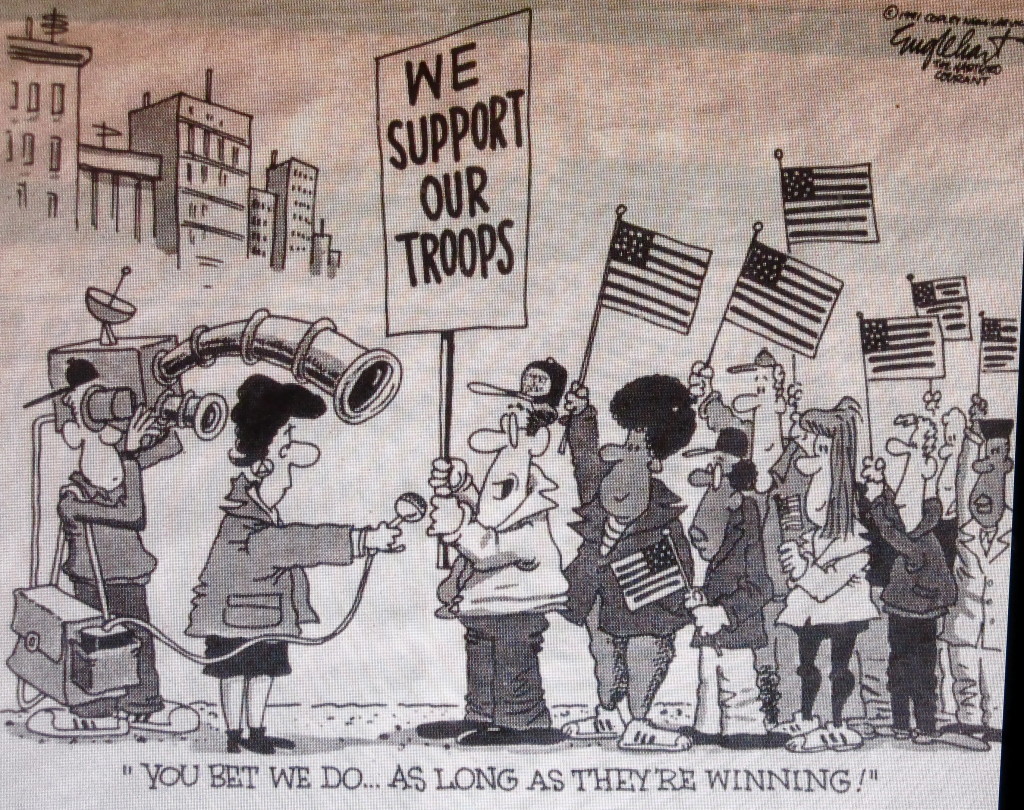
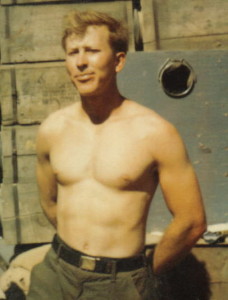
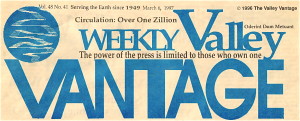
Good day! This post couldn’t be written any better! Reading this post reminds me of my good old room mate!
He always kept chatting about this. I will forward this write-up to him.
Fairly certain he will have a good read. Thank you for sharing!
kıbrıs gece hayatı – kıbrıs gece hayatı
Wow, fantastic blog layout! How long have you been blogging for?
you make blogging look easy. The overall look of your web site
is wonderful, let alone the content!